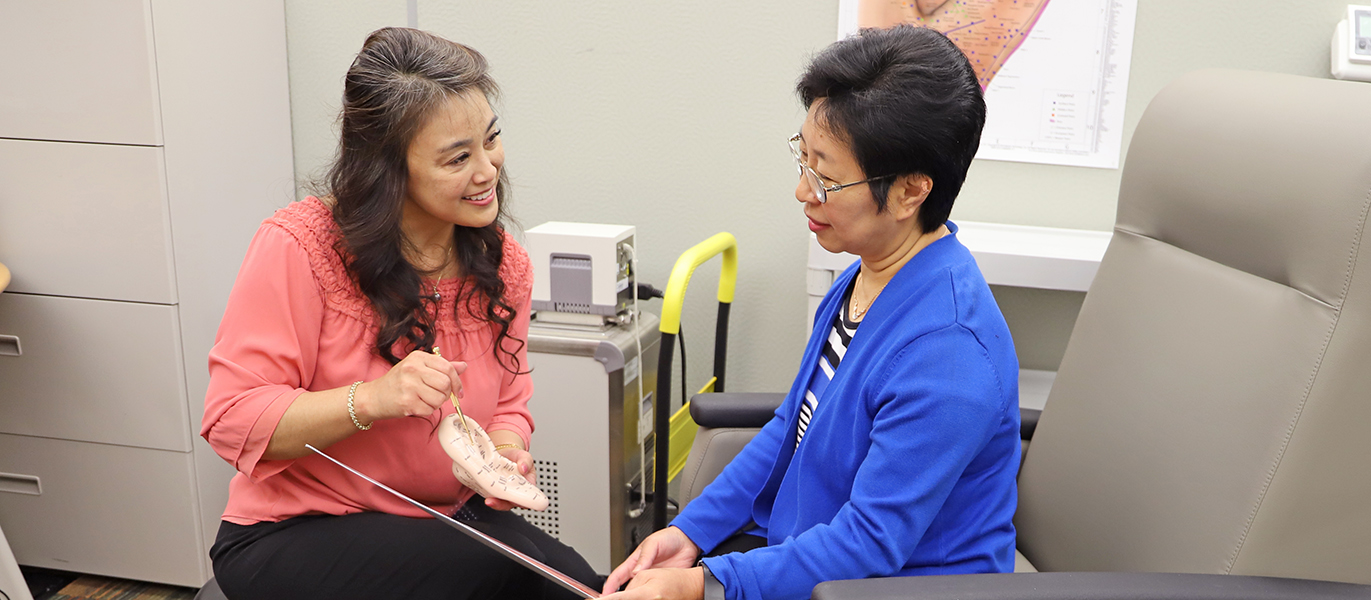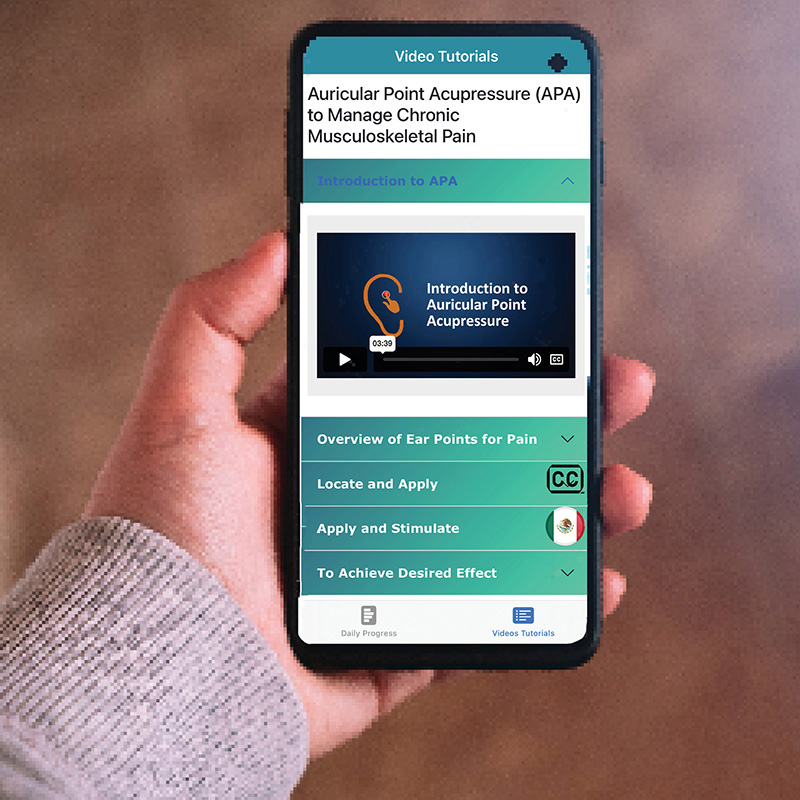
Pain Management Study
Nonpharmacological Approach to Chronic Pain Management
Our study, “Personalized Auricular Point Acupressure for Chronic Pain Self-Management in Rural Populations (UH3AT012728),” is a large-scale, pragmatic, randomized controlled trial testing a nonpharmaceutical pain intervention for chronic musculoskeletal pain for patients in rural areas of Texas and South Carolina.
This is a large, hybrid implementation-effectiveness clinical trial that engages and collaborates with rural partners, including health care clinics, community organizations, and community health workers. We are employing two key interventions that are supported by evidence in the literature (pain education/self-management and auricular point acupressure).
What is auricular point acupressure?
Auricular point acupressure (APA) is based on the acupuncture microsystem involving the stimulation of standardized points on the ear that correspond to body parts in pain. Nurse scientists at Cizik School of Nursing at UTHealth Houston are exploring APA as a nonpharmaceutical, self-managed, and cost-effective pain management alternative.
Professor Jennifer Kawi, PhD, MSN, FNP-BC, CNE, FAAN, is leading a study to test the effectiveness of APA, leveraging technology with a smartphone app, that enables patients in rural communities to self-administer auricular point acupressure.
The study, “Personalized Auricular Point Acupressure for Chronic Pain Self-Management in Rural Populations,” (4UH3AT012728-02) is funded by the National Center for Complementary and Integrative Health (NCCIH) and the National Institute of Neurological Disorders and Stroke (NINDS). The award is part of the Helping to End Addiction Long-term® (HEAL) Initiative of the National Institutes of Health (NIH).





